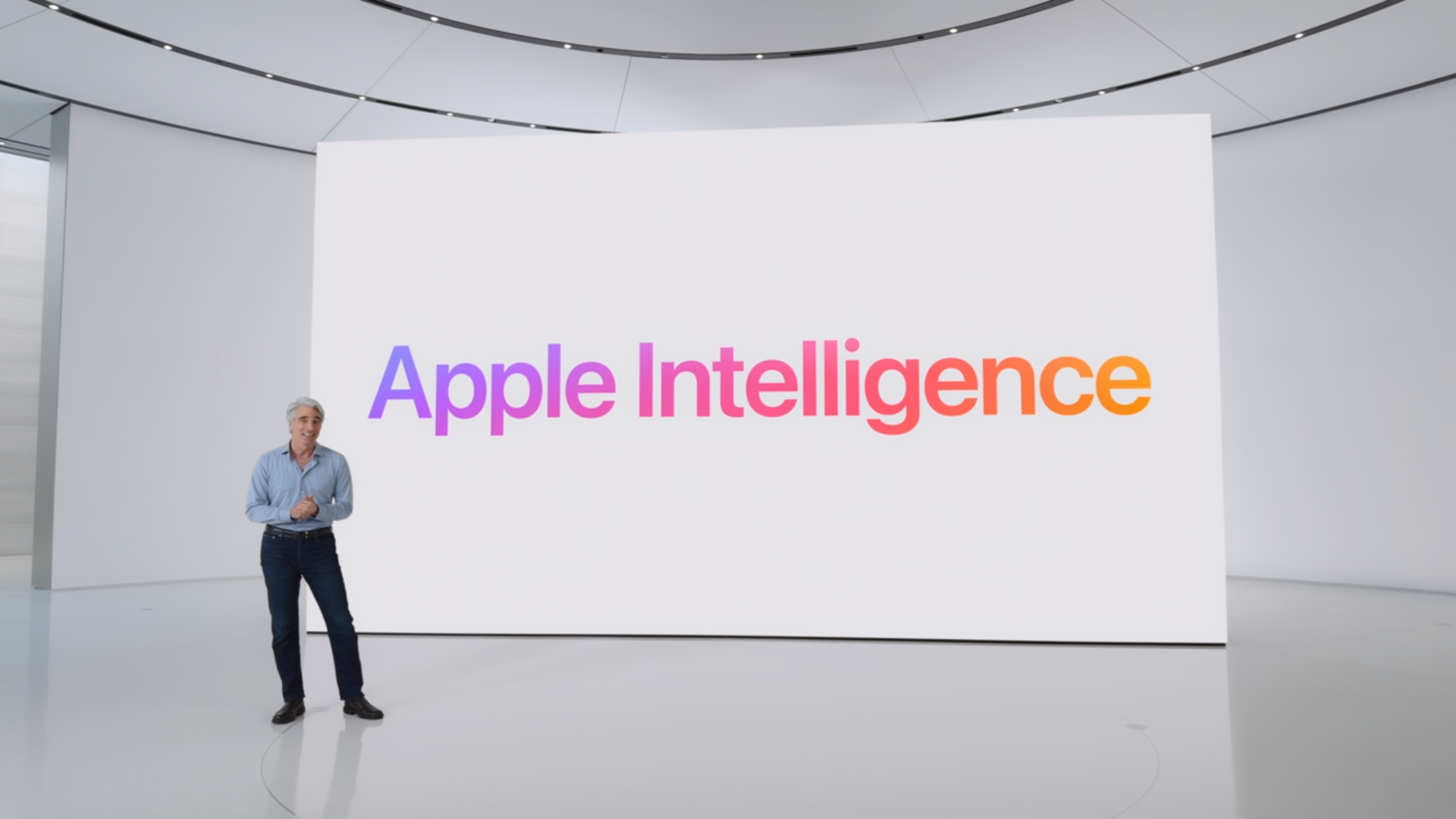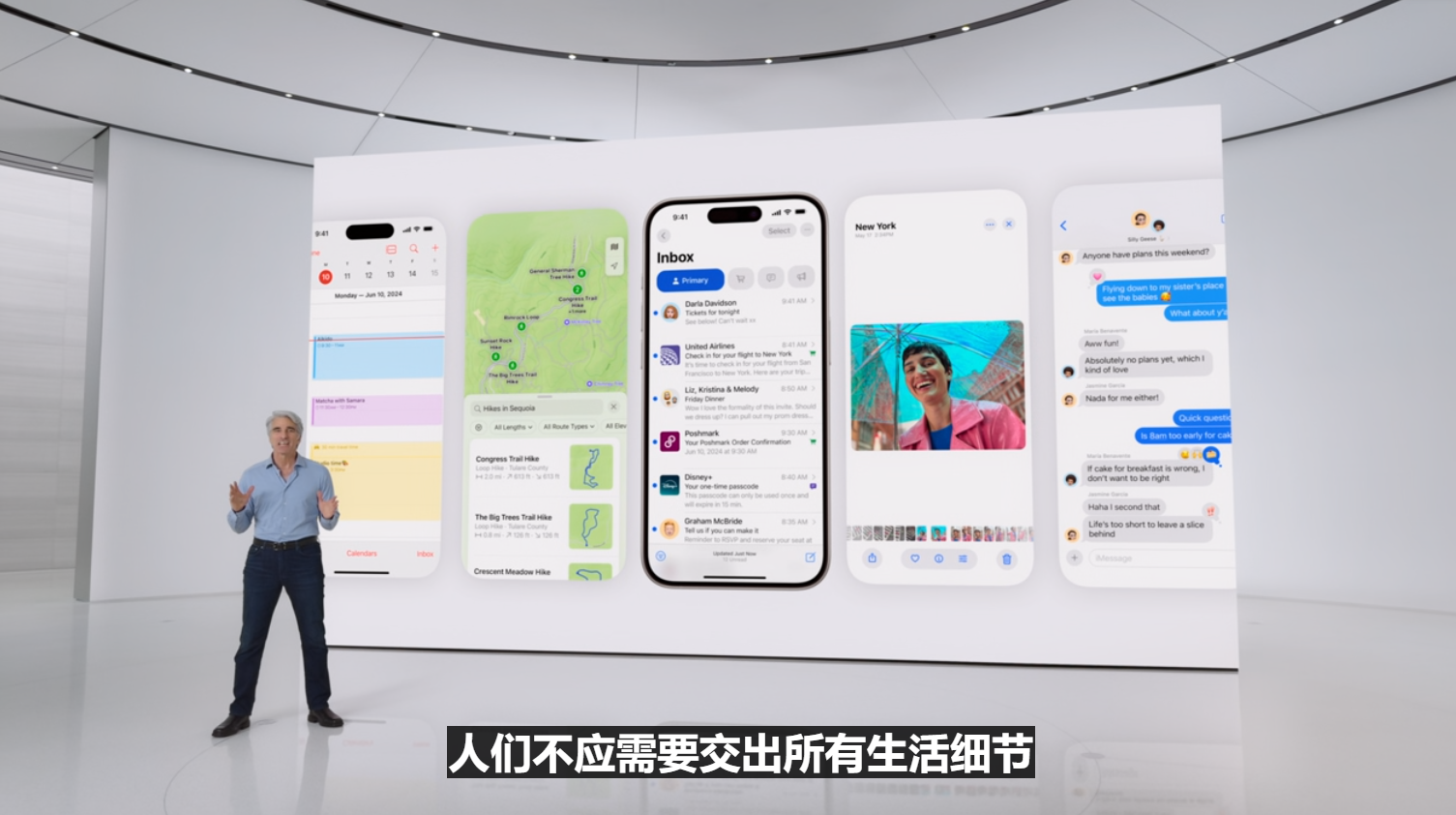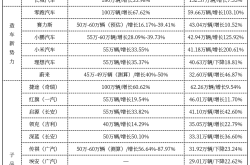```html WWDC24 Apple Unleashes Its AI Big Move: Compensating for Technical Disadvantages with Superior User Experience
![]() 06/11 2024
06/11 2024
![]() 790
790

WWDC, the annual event, officially kicked off on the early morning of June 11, Beijing time. As usual, Apple introduces a series of new software and hardware products during every WWDC.
The special aspect of WWDC24 lies in the fact that no new hardware products were announced this year (the Vision Pro for the Chinese market will be available for purchase at the end of the month), and alongside the routine updates for various systems, Apple showcased its AI big move - Apple Intelligence.

(Image source: Apple)
Apple's AI Big Move: Security and Privacy
Apple Intelligence can be seen as an AI product launched by Apple, providing various AI functions for a series of hardware products such as iPhone, iPad, Mac, and integrating closely with iOS, macOS, and other systems. Therefore, Apple Intelligence is not a separate app or function, but a comprehensive solution.
According to Apple's official statement, Apple Intelligence is based on a built-in large model and adopts the currently popular end-cloud combination model.
Specifically, when handling general AI-related tasks, if the local computing power can meet the demand, it will directly run and generate through the end-side model to satisfy user needs.
However, if the local computing power is insufficient, Apple Intelligence will complete AI tasks through cloud servers. Apple emphasized the importance of user privacy and security multiple times at WWDC24, stating that if Apple's cloud AI adopts the commonly used method, the security advantage of Apple Intelligence would be eliminated.
To address this, Apple adopted a unique approach. The cloud servers built by Apple Intelligence use Apple's own chips and are programmed in Swift, with the server code undergoing third-party expert review. At the same time, Apple promises that user-uploaded data will not be stored on the server, and user privacy will not be recorded or known by Apple.

(Image source: Apple)
Of course, if local computing power is to be used to handle most AI demands, then chips with outstanding AI performance are needed. At WWDC24, Apple announced the chip requirements for supporting Apple Intelligence's end-side computing. Currently, only the A17 Pro chip is supported on the iPhone side, meaning only the latest iPhone models, iPhone 15 Pro and iPhone 15 Pro Max, meet the requirements; for PCs and iPads, the oldest supported chip is M1, basically covering all Apple's PC ARM chips, and recent Apple Mac products, iPad Pro/Air, are generally supported.

(Image source: Apple)
Currently, Apple Intelligence is more tied to hardware rather than system versions. Older iPhones limited by chip performance will undoubtedly experience significant reductions in AI performance even after upgrading to the latest system.
However, the end-side-dominated, cloud-assisted model adopted by Apple Intelligence, as well as its unique cloud server deployment method, indeed align well with Apple's consistent emphasis on privacy and security. This can significantly reduce users' concerns about privacy breaches in AI products, thus becoming another competitive advantage for Apple's products in the future.
The Core Advantage of Apple Intelligence: Experience
In fact, through just one WWDC presentation, we still cannot gain a deep understanding of the technical details behind Apple Intelligence. For example, it is unclear whether the large model built into Apple Intelligence is an independent research achievement of Apple or an externally








